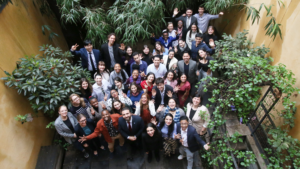 Europe recently witnessed a controversial debate at the European Parliament. The Estrela Report on Sexual and Reproductive Health and Rights was put forth by Edite Estrela, Portuguese MEP and Vice-President of the Women’s Rights and Gender Equality Commission at the European Parliament.
Europe recently witnessed a controversial debate at the European Parliament. The Estrela Report on Sexual and Reproductive Health and Rights was put forth by Edite Estrela, Portuguese MEP and Vice-President of the Women’s Rights and Gender Equality Commission at the European Parliament.
To prepare the work of the European Parliament in plenary sessions, MEPs work in permanent commissions that focus on different areas of society. One aspect of an MEP’s role is to propose motions for resolutions which are debated and voted on during the plenary sessions in Strasbourg. A motion for a resolution is neither a new law nor a legal proposal. The motion has a limited range, and is not binding. Motions are mainly used by MEPs to formulate recommendations on initiative reports. The Estrela Report was a motion for a resolution.
What is the Estrela report about?
This motion was debated for the first time during a plenary session of the European Parliament on October 21, 2013 in Strasbourg, France. Rejected by the committee, it was voted on a second time during December 10, and was again rejected, this time by 7 voices. An alternative resolution was proposed by the EPP group (one of the 7 political groups in the EP) affirming that the sexual and reproductive rights were the concern of the Member States. The tittle of the motion shows the global theme developed in the Estrela report: “Report on Sexual and Reproductive Health and Rights”. From the beginning, we can see that the commission wants to define sexual and reproductive health as rights, which is inaccurate.
Let us examine some statements written in the report which infringes on basic human rights:
35. “(…) stresses that Member States should regulate and monitor the use of conscientious objection.”
42. “(…) make use of other various methods in reaching out to young people, such as publicity campaigns, social marketing for condom use…”
It is inconsistent to propose “regulating the use of conscientious objection”, “social marketing for condom use” and “sex education classes compulsory for all primary and secondary school” (43) when there is no international nor European right of access to sexual education, abortion, or reproductive health and when a motion of resolution does not have the right to create legislative rights.
This is what civil society organizations such as WYA Europe, the FAFCE, and the European Dignity Watch fought during two months which highlighted that this report was not only legally incorrect, but also failed to represent the real health issues of today in European societies. As Sophia Kuby, Director of European Dignity Watch, said, “what it [Estrela Report] offered was free and safe access to abortion on demand. This is neither health care, not support for women, but it profoundly disrespects women, their dignity as well as the dignity of children yet to be born.”
Learn more about the Estrela report from an interview by Sophia Kuby available here.
Learn more about reproductive health in the WYA White Paper on Reproductive Health, here.
To read the Estrela report, click here.
By Priscille Pialoux, a WYA member from France and intern at the WYA Europe office







